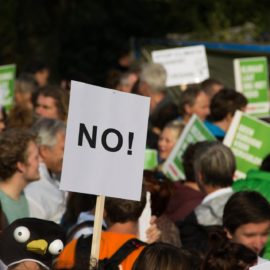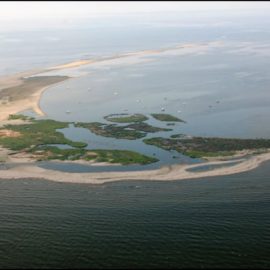
4,000 pages is a lot to read and I am sure there are technical terms I would not understand. So, Bob Marshall, explain it to me.
One of the first things a journalist learns covering science is this: Words are to science what numbers are to math. A researcher using the wrong word (or even misspelling it) in published conclusions is analogous to a mathematician using the wrong number in an equation. That will not only imply the wrong answer, but in the age of the world wide web, the whole field will be mocking and discrediting them. That can make interviewing scientists frustrating for us journalists. They can seem beyond careful and cautious. And even when they make a bold statement, they often have those dreaded caveats that can kill attention-getting headlines. Well, no group of scientists has been as careful as the hundreds of noted climate researchers from around the world that make up the Intergovernmental Panel on Climate Change (IPCC). Indeed, noted climatologists outside that conclave have consistently criticized its first five consensus reports beginning in 1990 as too conservative and dismissing of current events. Its “conclusions” have been limited with modifiers like “probable” or “likely” or “moderate confidence.” All of which makes last week’s release of its sixth assessment mandatory reading for residents, business owners and politicians living in North America’s most climate threatened landscape: south Louisiana.
nola.com
Agreed with the careful and precise word statements but what does this one say in clear and unambiguous words?
The caveats and the modifiers are gone. Among its conclusions: it is “unequivocable” and “irrefutable” that climate change is real and is being caused by human-produced greenhouse gases, it is a key factor in the extreme weather events we are experiencing including record droughts and high temperatures, wildfires, tropical storms, flooding rains, and increased coastal flooding due to sea level wrise, those impacts will continue over the next 20 to 30 years regardless of what we do, sea level rise — the major immediate threat to coastal Louisiana — will continue to accelerate through this century. But we have time to moderate it by dramatically reducing emissions in the next decade or two, arming will pass the 1.5 C increase over pre-industrial times, the tipping point projections warn will unleash even more dire impacts. But there are still opportunities to hold it below 2.0 C, which would be even worse and lack of sufficient action so far means much of what we do in emissions beginning now will be for the benefit of our children and future generations.
Ouch! Not good in that even if we do things it continues. Yet, many will still scoff and say we don’t need to do anything.
And just in case the written report is a little too dense and long (4,000 pages!) for die-hard doubters, U.N. Secretary-General António Guterres had an unmistakable summary of its meaning: “A code red for humanity.” “The alarm bells are deafening,” he said. “This report must sound a death knell for coal and fossil fuels, before they destroy our planet.” There are no silver linings in this report, no cures for the world, only medicine that can reduce the pain and suffering. And no part of this planet needs to pay closer attention than south Louisiana. “One of the important findings for Louisiana is how the changes in climate are having compounding effects on extreme events and making them more severe,” said Louisianian Virginia Burkett, chief scientist for climate and land use change at the U.S. Geological Survey, and a co-author of previous IPCC assessments. “For us here on the coast, we’re seeing how warmer temperatures lead to larger hurricanes, heavier rains, more frequent flooding, more needless deaths and costs. “And it’s clear we have a limited time to make a difference not just for us, but for the future.”
Is there one last word we should heed?
That last point is what another of Louisiana’s noted climate researchers, Torbjörn Törnqvist of Tulane University, says is one of his main takeaways from the report. “The projections for sea level rise mean we likely won’t see anything catastrophic in our lifetimes, but if we don’t act now, then things get really bad for my daughter,” he said. “A lot of the findings show what we do now will determine what we leave behind for future generations. “I think they finally use the right word: Unequivocable.” This time, there’s no doubt about it.
Unequivocal. That says a lot in one word. We need to act. Now.



